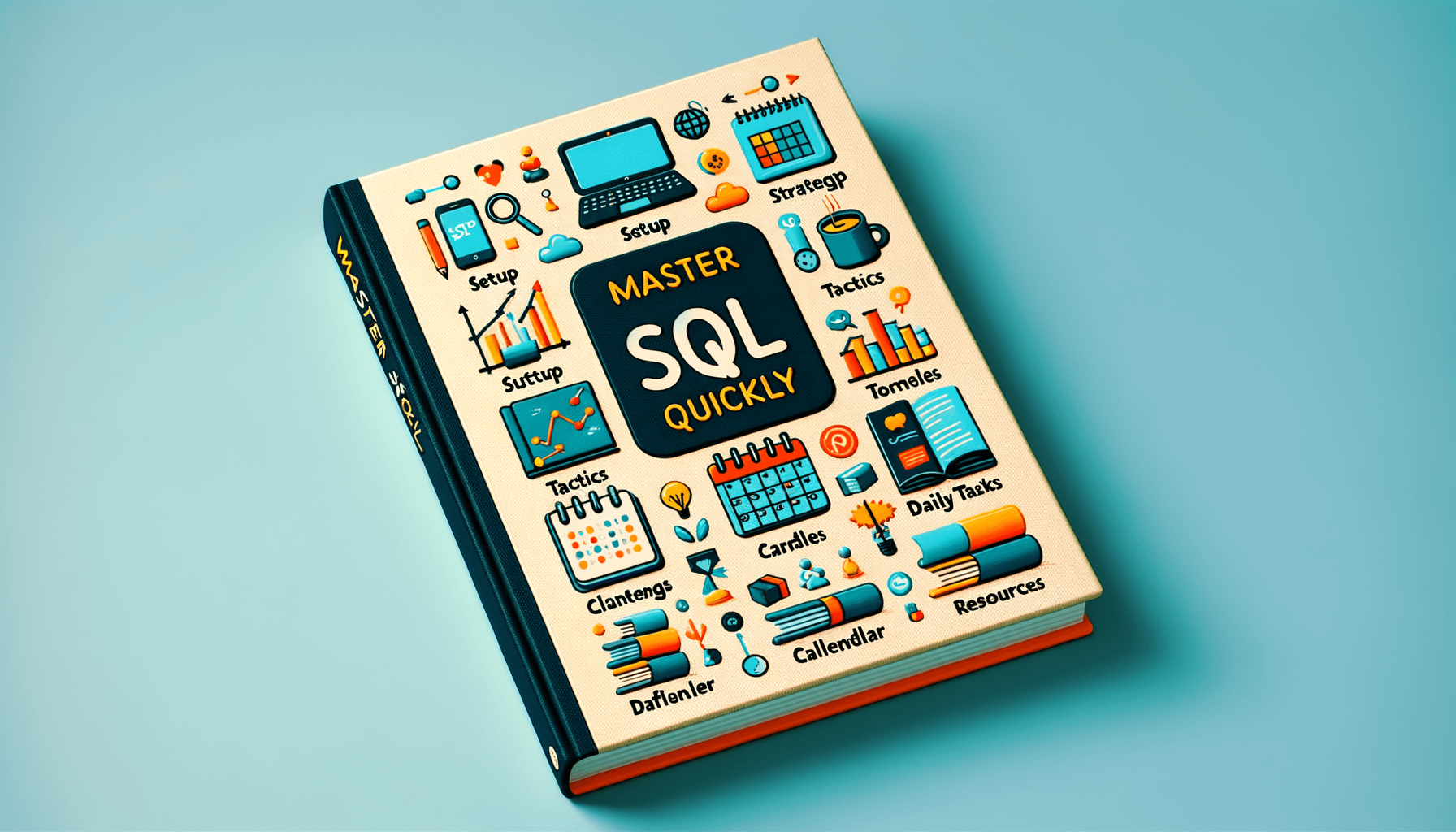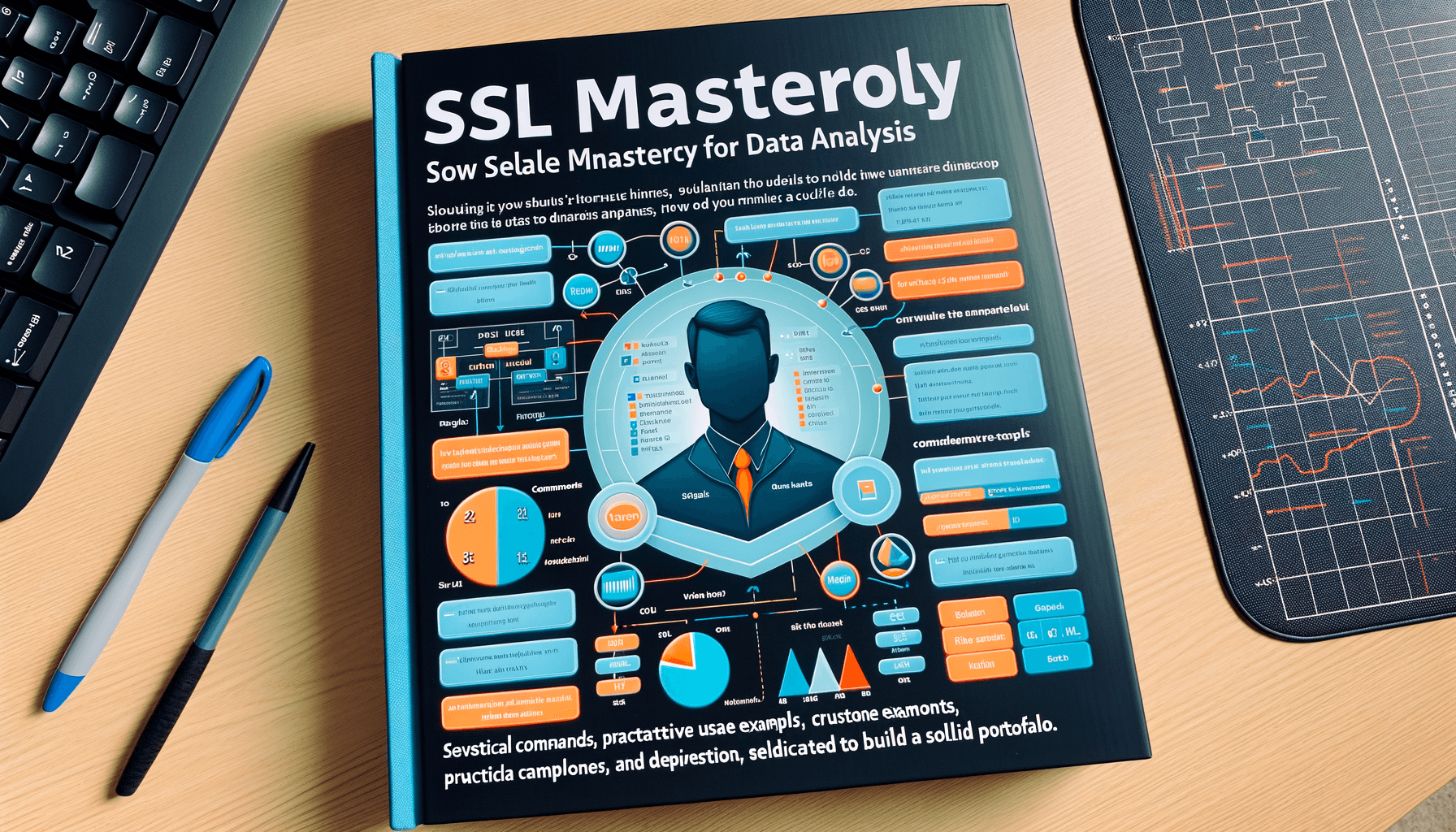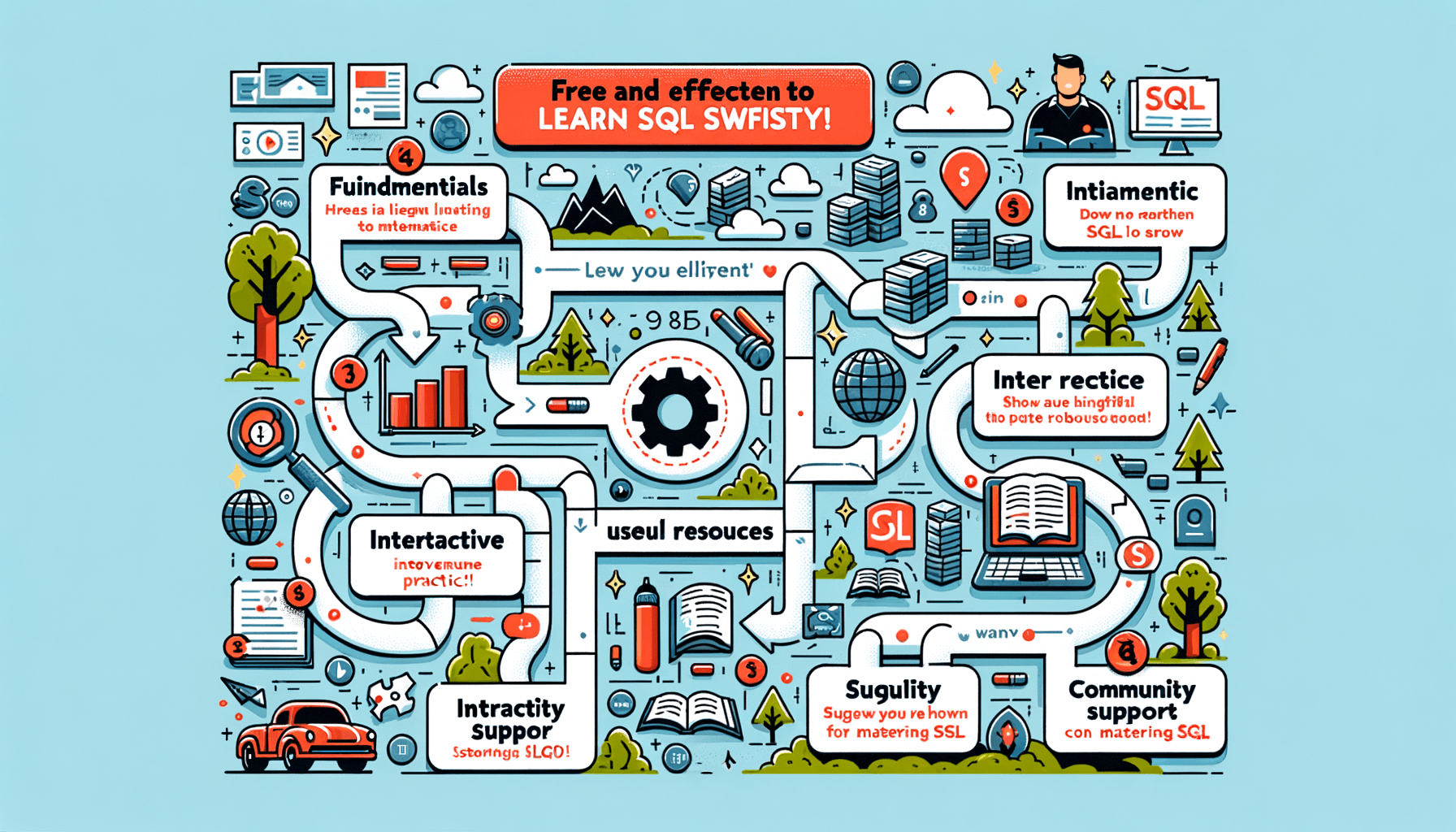A big variety of articles and resources

Learn SQL Quickly: Essential Tips to Accelerate Your Learning
 Sia Author and Instructor
Learn SQL
Sia Author and Instructor
Learn SQL
7 minute read
Understanding the Basics of SQL
Grasping SQL Syntax
SQL syntax is the set of rules that defines the combinations of symbols that are considered to be a correctly structured SQL query. Understanding the syntax is crucial as it is the foundation of how to write effective SQL queries. It includes knowing how to use various SQL commands, clauses, and predicates to form a valid SQL statement.
The Importance of SQL in Data Management
SQL plays a pivotal role in data management by allowing users to retrieve, insert, update, and delete data within a database. This capability makes it an indispensable tool for data analysts, database administrators, and developers. Data management is critical as it helps organizations make data-driven decisions and maintain data integrity.
Essential SQL Commands to Know
To get started with SQL, it's important to familiarize yourself with basic commands such as SELECT, INSERT, UPDATE, and DELETE. These commands allow you to perform essential database operations:
- SELECT: Retrieve data from a database
- INSERT: Add new data to a database
- UPDATE: Modify existing data in a database
- DELETE: Remove data from a database
Mastering these commands is the first step towards becoming proficient in SQL.
Setting Up Your SQL Learning Environment
Choosing the Right SQL Software
Selecting the appropriate SQL software is crucial for an effective learning experience. Consider factors like user-friendliness, community support, and the availability of learning resources. Popular choices include MySQL, PostgreSQL, and Microsoft SQL Server, each offering unique features and extensive documentation.
Configuring Your Workspace
Ensure your workspace is organized and conducive to learning. A well-arranged environment minimizes distractions and enhances focus. This includes having a comfortable seating arrangement, adequate lighting, and all necessary software installed and configured.
Accessing Quality Learning Resources
Access to high-quality learning resources can significantly accelerate your SQL learning curve. Look for interactive courses, such as the Mini Course: SQL Essentials, which include practical exercises and quizzes to test your knowledge. Additionally, engaging with online communities and forums can provide support and further insights into SQL.
Effective Learning Strategies
Interactive Learning vs. Passive Reading
Interactive learning methods, such as engaging in hands-on projects or using simulation tools, often yield better results than passive reading. Incorporating practical exercises can significantly enhance your understanding and retention of SQL. Interactive platforms like 'Jumpstart SQL: Free Introductory Lessons' are highly recommended for gaining essential database management skills.
Setting Achievable Learning Goals
Setting small, manageable goals can help maintain motivation and ensure steady progress in learning SQL. Start with basic commands and gradually move to more complex queries. It's crucial to celebrate small victories along the way to keep the learning process enjoyable and effective.
Utilizing Practice Exercises
Practice is key to mastering SQL. Regularly solving problems and working on real-life scenarios helps solidify your knowledge and skills. Create a routine that includes daily or weekly practice sessions to consistently improve your SQL abilities.
Common Challenges and How to Overcome Them
Dealing with Complex Queries
Complex SQL queries can be daunting, especially for beginners. To tackle this, start by breaking down the query into smaller, manageable parts. Understand each component before combining them. Practice with structured exercises like those offered in our Monthly SQL Challenges can significantly enhance your understanding and skills.
Overcoming Information Overload
The vast amount of information available can be overwhelming. Focus on mastering the basics first and gradually expand your knowledge. Utilize resources like Jumpstart SQL which offers free introductory lessons tailored for beginners. This structured approach helps in assimilating information effectively.
Staying Motivated Through Frustrations
It's common to feel frustrated when progress seems slow. Remember, consistency is key. Set small, achievable goals and celebrate small victories. Engage with communities and forums for support and motivation. If you ever feel demotivated, remember that persistence is crucial in mastering SQL.
Advanced SQL Concepts to Explore
Understanding Joins and Relationships
Joins are fundamental in SQL for combining rows from two or more tables based on a related column between them. Mastering joins is crucial for anyone looking to delve deeper into SQL, as they allow for more complex queries and data analysis.
Mastering Aggregate Functions
Aggregate functions are used to perform calculations on a set of values to return a single scalar value. Common functions include SUM, COUNT, MAX, MIN, and AVG. These functions are essential for summarizing data, especially in reporting and data analysis contexts.
Exploring Subqueries and Nested Queries
Subqueries and nested queries enhance the flexibility and power of SQL queries. They allow you to perform operations that would normally require multiple queries in a single SQL statement. This capability is particularly useful for complex data analysis and ensuring efficient data processing.
Incorporating SQL into Daily Tasks
Automating Data Tasks with SQL
SQL can significantly streamline your daily data tasks by automating repetitive processes. Automating routine tasks not only saves time but also reduces the likelihood of errors. For instance, you can schedule SQL scripts to run at specific times, ensuring that your data is always up-to-date without manual intervention.
Enhancing Data Analysis Skills
With SQL, you can enhance your data analysis skills by gaining the ability to quickly manipulate and analyze large datasets. This skill is crucial in making informed decisions based on accurate data. Learning to write efficient queries can help you uncover insights that are not immediately obvious, providing a competitive edge in your field.
SQL for Decision Making
SQL is a powerful tool for decision-making processes. It allows you to query vast amounts of data swiftly and accurately, supporting strategic business decisions. By integrating SQL into your daily decision-making routine, you ensure that your choices are backed by solid data, leading to more effective outcomes.
Resources and Tools to Enhance Learning
Recommended Books and Online Courses
To accelerate your SQL learning, it's crucial to access high-quality educational materials. Platforms like W3Schools and DataCamp offer comprehensive tutorials and courses that cater to both beginners and advanced users. These platforms provide practical examples and step-by-step guides that are essential for mastering SQL.
Software Tools for Practice
Practicing SQL is key to mastering it. Utilize platforms such as StrataScratch, LeetCode, and DataLemur. These tools offer a range of problems from basic to advanced levels, helping you to hone your skills effectively. Engaging with real-world case studies, like those from Data with Danny’s 8-Week SQL Challenge, can significantly enhance your problem-solving abilities.
Communities and Forums for Support
Joining SQL communities and forums can provide invaluable support and insights as you learn. Platforms like Stack Overflow and specific SQL forums offer a space to discuss problems, share knowledge, and connect with other learners. These communities are vital for staying motivated and overcoming common challenges in SQL learning.
Conclusion
YOU CAN LEARN SQL QUICKLY!
Now you know how to learn SQL faster. I hope that these tips will help you learn effectively and reach your goals. By trial and error, you’ll be able to work out your perfect learning mode. You don't have to reinvent the wheel; there are many courses and guides developed by experts that you can rely on. Don't be afraid of failure – it’s part of the learning process.
Frequently Asked Questions
Is it difficult to learn SQL?
No, it's not difficult to learn SQL. With the right resources and strategies, you can learn SQL quickly and effectively.
Can I learn SQL in a week?
Yes, it is possible to learn the basics of SQL within a week with intensive study and practice.
What are the essential SQL commands I should know?
Some essential SQL commands include SELECT, INSERT, UPDATE, DELETE, and JOIN.
How can I practice SQL effectively?
You can practice SQL by using online platforms that offer practical exercises, joining SQL forums, and working on real-life database problems.
What are the best resources for learning SQL?
Good resources include online courses, books like 'Learn SQL in 10 Minutes' by Ben Forta, and interactive SQL practice websites.
How can SQL help in my career?
SQL is crucial in data-driven industries for tasks like data analysis, making informed decisions, and automating data tasks.
Related Articles

10 Effective Tips on How to Learn SQL Online
9 minute read

A Comprehensive Guide to Learn SQL for Analysts
8 minute read


